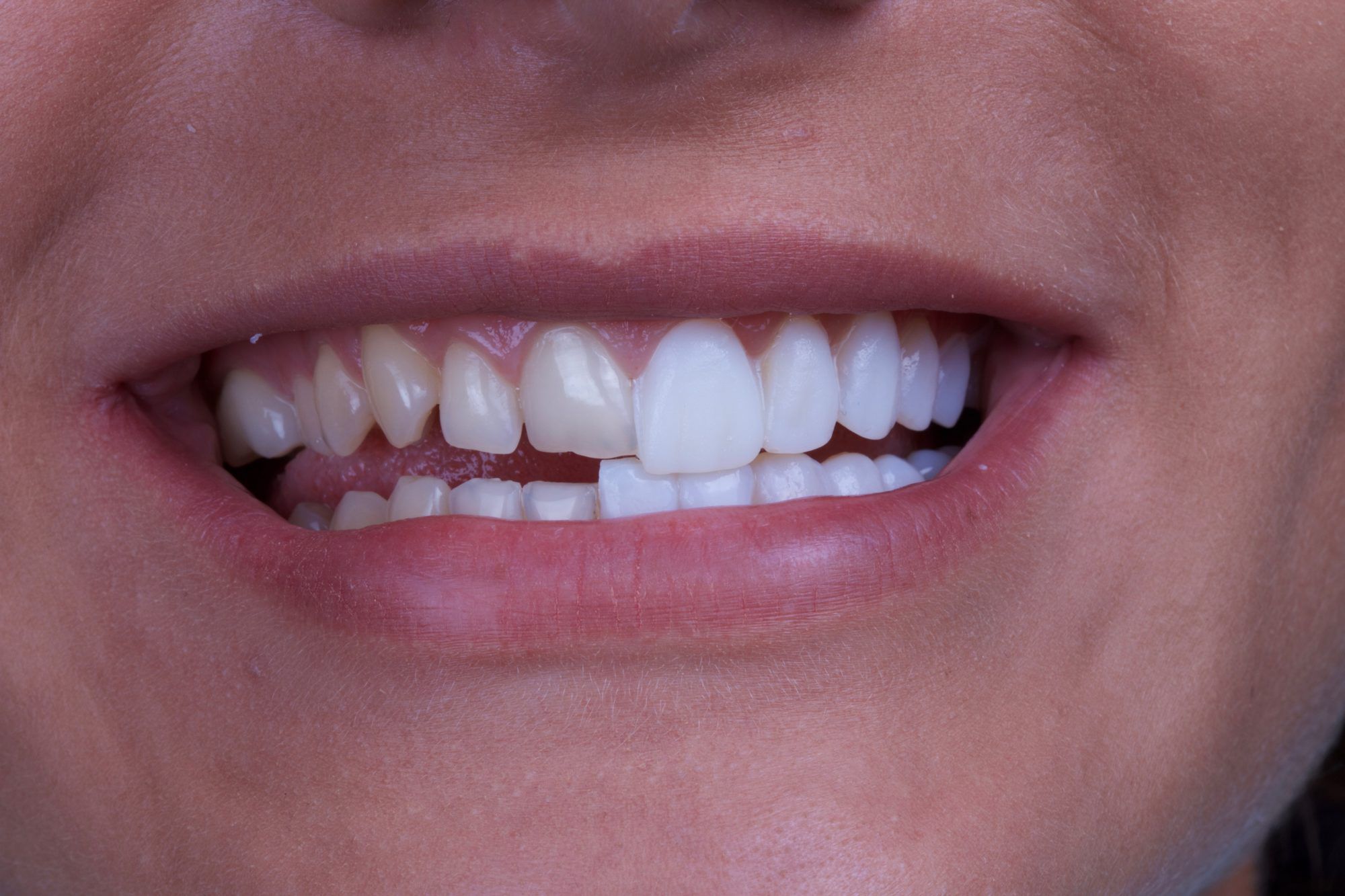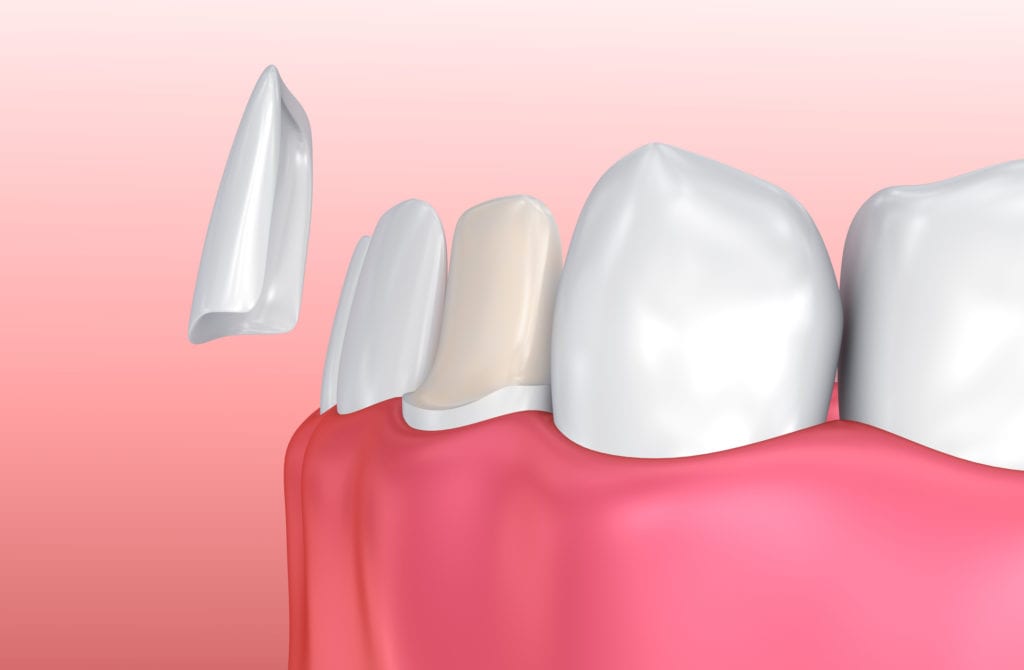Veneers Teeth vs. Dental Veneers: What You Should Know Before Choosing
Wiki Article
The Complete Summary of Veneers: Kinds, Uses, and Their Influence on Your Smile
Veneers work as a popular option for people seeking to boost their oral visual appeals. These custom-crafted coverings can effectively mask flaws such as discoloration and spaces. With 2 key types available, porcelain and composite material, each deals distinctive advantages and restrictions. The effect of veneers extends beyond simple appearance, influencing self-esteem and social interactions. Understanding their kinds and benefits is vital. What might this mean for one's total lifestyle?Recognizing Veneers: What They Are and Just how They Function
Veneers are thin coverings, typically made from porcelain or composite material, that are custom-crafted to fit over the front surface area of teeth. They serve both aesthetic and practical objectives, providing a service for different oral blemishes such as staining, voids, and minor misalignments. By sticking to the tooth enamel, veneers produce a natural appearance while boosting the form and shade of the teeth.The procedure usually entails a first examination, where a dentist analyzes the person's demands and goes over wanted outcomes - Porcelain Veneers Dentist. Following this, a marginal quantity of enamel might be eliminated to fit the veneer. Perceptions of the teeth are then taken to assure an exact fit. When fabricated, the veneers are bonded securely to the teeth making use of a special dental adhesive. This procedure not just enhances the smile's appearance however also aids protect the underlying teeth from additional damages, making veneers a popular selection for numerous seeking a smile transformation
Kinds of Veneers: Porcelain vs. Compound Resin
The distinction between porcelain and composite material veneers depends on their material make-up and characteristics. Each kind offers differing degrees of price, durability, and durability, affecting patients' choices based upon their specific requirements. Recognizing these distinctions is important for making an informed decision relating to oral improvements.Product Distinctions Discussed
While both porcelain and composite resin veneers offer the exact same cosmetic function, they differ significantly in material properties, sturdiness, and aesthetic results. Porcelain veneers are crafted from a ceramic material that imitates the all-natural transparency of teeth, giving a natural look. Their smooth surface is resistant to discoloration, making them an appealing alternative for those seeking a long-lasting visual. On the other hand, composite resin veneers are made from a tooth-colored plastic material, offering flexibility and convenience of application. Nevertheless, they might not achieve the very same degree of illumination or translucency as porcelain. Furthermore, composite veneers can be a lot more quickly formed and repaired, making them a much more flexible alternative in certain dental situations. Each type provides special advantages customized to individual choices.Long life and Toughness
Durability and sturdiness are significant factors when contrasting porcelain and composite material veneers. Porcelain veneers are known for their stamina, commonly enduring 10 to 15 years with appropriate treatment. Their resilience versus chipping and tarnishing makes them a popular selection for individuals looking for long-term outcomes. On the other hand, composite resin veneers normally have a much shorter lifespan, averaging 5 to 7 years. While they can be repaired a lot more quickly if harmed, they are much more vulnerable to use and staining in time. The option in between these products typically depends on the individual's way of life, aesthetic objectives, and maintenance preferences. Eventually, comprehending the distinctions in long life and durability can lead patients in selecting the veneer type that finest matches their requirements.Expense Comparison Insights
Expense is a critical consideration when picking in between porcelain and composite material veneers. Porcelain veneers generally range from $800 to $2,500 per tooth, mirroring their durability, aesthetic allure, and resistance to staining. These veneers call for a more extensive treatment and specialized laboratory work, contributing to their greater cost. In comparison, composite resin veneers are usually much more economical, costing in between $250 and $1,500 per tooth. They can be applied in a single see, which reduces labor expenses. Composite veneers might require extra constant replacements, potentially enhancing long-term expenditures. Eventually, the choice in between porcelain and composite resin veneers depends upon individual budgets and desired outcomes, balancing first prices against longevity and aesthetic results.The Advantages of Choosing Veneers for Your Smile
Picking veneers uses considerable benefits for those looking for a boosted smile. Their enhanced aesthetic charm can transform the appearance of teeth, while their stain-resistant properties assure an enduring brightness - Dental Veneers. This combination makes veneers a popular option for individuals looking to achieve a flawless smileBoosted Visual Allure
When people look for to boost their smiles, veneers typically become a favored solution as a result of their transformative aesthetic benefits. These slim coverings, generally constructed from porcelain or composite material, can properly conceal blemishes such as chips, voids, and imbalance. By resembling the all-natural appearance of teeth, veneers give a smooth, glowing smile. Their adjustable nature enables a customized technique, enabling people to select tones and shapes that best match their facial features. Furthermore, veneers can create a consistent appearance, boosting overall face symmetry. This visual enhancement not just improves confidence however can also positively affect social interactions and individual relationships, making veneers a prominent selection for those wanting to attain a brighter, much more eye-catching smile.Stain Resistance Perks
Veneers not just enhance visual allure but also use substantial stain resistance, making them an eye-catching alternative for individuals concerned concerning keeping a bright smile. Composed of resilient products such as porcelain or composite material, veneers are less porous than natural teeth, which assists protect against the absorption of stains from common offenders like coffee, tea, and red wine. This fundamental tarnish resistance allows individuals to enjoy their preferred drinks without bothering with discoloration. Dental Veneers. In addition, the smooth surface area of veneers makes them easier to clean, additional improving their long life and keeping their excellent look. Consequently, veneers provide a useful option for those seeking both charm and functionality in their dental careThe Refine of Getting Veneers: What to Expect

Although the process of obtaining veneers may seem daunting, comprehending the actions entailed can minimize worries. Originally, a consultation with a dental professional is needed to establish if veneers are the proper service for the individual's oral problems. Throughout this visit, the dental professional will review preferred results and take impressions of the teeth.
Next off, a 2nd appointment is set up for tooth preparation, where a percentage of enamel is normally removed to suit the veneers. Short-lived veneers might be put while the customized ones are crafted in an oral lab, which normally takes a pair of weeks.
As soon as all set, the dental professional will certainly place the veneers, guaranteeing appropriate fit and color prior to bonding them to the teeth using a special adhesive. After final adjustments, the dental professional will certainly provide support on care. Comprehending these actions can help clients really feel more comfortable and educated throughout the veneer process.
Maintenance and Take Care Of Your Veneers
Keeping veneers requires constant like guarantee their durability and look. Correct oral hygiene is necessary; cleaning twice daily with a non-abrasive tooth paste and flossing on a regular basis aid avoid plaque accumulation around the veneers. In addition, regular oral check-ups are important for keeping an eye on the problem of the veneers and resolving any kind of possible issues at an early stage.When biting to stop damages, clients should avoid hard foods and extreme force. It's likewise suggested to restrict intake of tarnishing substances, such as coffee, tea, and red wine, as these can affect the veneers' shade gradually.

Transforming Your Smile: Real-Life Effect of Veneers
A glowing smile can significantly improve one's confidence and total look. For numerous people, veneers act as a transformative solution, effectively dealing with various dental concerns such as discoloration, gaps, and imbalance. These slim shells, custom-made to fit over the front of the teeth, can create a harmonious and visually pleasing smile.Real-life situations show the profound effect veneers can have. Individuals commonly report a prompt increase in self-worth and social communications following their treatment. The newly found self-confidence can cause even more chances in personal and expert life, as individuals feel more inclined to involve and share themselves.
Furthermore, the mental benefits extend past simple appearance; several experience boosted mental well-being as they welcome their smiles. As a result, veneers not only boost physical characteristics but additionally contribute substantially to total lifestyle, emphasizing their worth in cosmetic dental care.
Often Asked Concerns
visit hereHow Lengthy Do Veneers Usually Last Before Requiring Replacement?
Veneers typically last in between 10 to 15 years before calling for replacement. Variables such as oral hygiene, dental practices, and the kind of material made visit this page use of can affect their longevity and general resilience. Routine oral check-ups are suggested.Can Veneers Be Removed, and if So, How?
Yes, veneers can be removed. A dentist normally makes use of specialized tools to meticulously detach them from the teeth, guaranteeing very little damages to the underlying enamel, frequently adhered to by required adjustments or repairs for excellent visual appeals.Are Veneers Suitable for Everybody's Oral Condition?

Will Getting Veneers Pain or Require Anesthetic?
Getting veneers normally entails very little pain, and many individuals obtain local anesthetic to guarantee a pain-free experience. Sensitivity may occur briefly later, yet the majority of find the procedure tolerable and are pleased with the results.Just How Do Veneers Affect Tooth Sensitivity After Positioning?
Veneers can momentarily enhance tooth level of sensitivity due to the elimination of enamel and the bonding process. A lot of individuals experience a reduction in level of sensitivity in time as the teeth get used to the new veneers.Veneers are thin coverings, generally made from porcelain or composite resin, that are custom-crafted to fit over the front surface of teeth. Porcelain veneers are crafted from a ceramic product that simulates the all-natural transparency of teeth, providing a lifelike appearance. Porcelain veneers usually vary from $800 to $2,500 per tooth, showing their longevity, visual allure, and resistance to discoloration. In comparison, composite material veneers are generally much more budget friendly, setting you back in between $250 and $1,500 per tooth. Made up of sturdy products such as porcelain or composite material, veneers are find out less porous than natural teeth, which helps protect against the absorption of stains from common culprits like coffee, tea, and red wine.
Report this wiki page